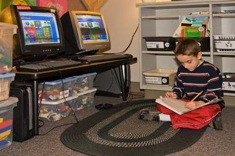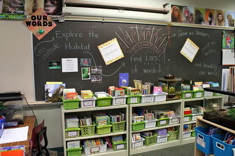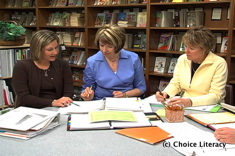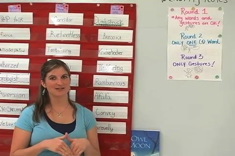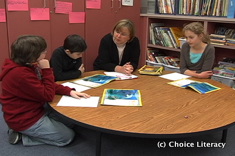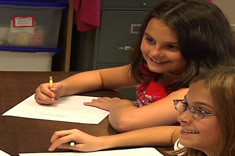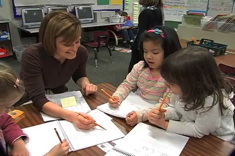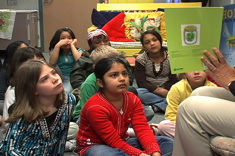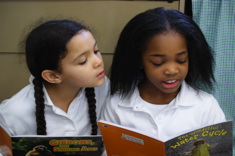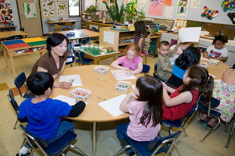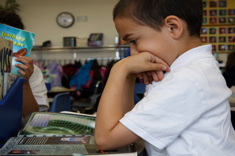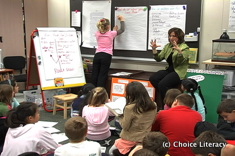Articles
Here is where you’ll find all the latest print features from our contributors. If you’d like to browse specifically by grade level, topic, or contributor, you can use the links in the right sidebar.
Latest Content
Addicted to Twitter: How Did It Happen?
Franki Sibberson documents the stages of tweetage, from avoidance to addiction.
The Reading Skills We Use When Searching the Internet
Browsing and previewing skills change when the medium is the Internet. Franki Sibberson has advice for working with tech-savvy young readers.
Implementing RTI: Keeping Students at the Heart of Our Conversations
Jennifer Allen provides some prompts for staff discussions about Response to Intervention to help you connect long-term goals and beliefs with short-term strategies.
Living Words: Integrating Word Study, Technology, and Content Literacy (Part 1)
Living Words is a quick routine from Andrea Smith that helps students see the power of rich vocabulary for describing the natural world around them.
Creating a Model Writing School
Julie Johnson shares the professional development plan and experiences that led to her school's evolution into a model writing school.
Expectations for Grade-Level Team Meetings
Tammy Mulligan and Clare Landrigan share their top tips for improving team meetings.
Vocabrity: Fun with Words for Middle School Students
Are your students getting bored with vocabulary routines? Katie Doherty invents a quick and fun game, Vocabrity, to help her middle school students learn words.
Restless Wanderer: Lessons for Teachers from Summer Vacations
Are teachers ever really on vacation? In “Restless Wanderer” Shelly Archer ponders moments on a holiday that aren’t much fun, and can’t help but connect them to teaching struggles.
The Importance of Book Clubs for Learners of Any Age
Karen Terlecky brings lessons from her adult book club to her structure of book clubs in her 5th grade classroom. The article includes launching and management tips.
Creating a Model Writing School . . . Next Steps
Julie Johnson documents the continuing evolution of her learning community as a model writing school.
Creating Data Teams
Literacy leaders are spending more and more time organizing, compiling, and storing assessment data, often leaving little time to analyze the findings with teachers. Clare Landrigan and Tammy Mulligan explain the value of enlisting tech support to assist with the data load.
The Joy of Letter Writing: An Integrated Unit for Intermediate Students
Letter writing isn't a lost art in Mary Lee Hahn's 4th grade classroom. This unit has timeless appeal for students of all ages.
Assessment in Writing Workshops: Considering Students
What does formative assessment look like in practice? Katie DiCesare shares her assessment insights in these brief case studies of two first-grade students.
How to Use a Coach: Four Things to Consider
Teachers, are you getting the most out of your relationships with the literacy coaches and other mentors in your midst? Heather Rader has some thoughtful back-to-school advice for building more powerful teacher-coach relationships
Are You Scaffolding or Rescuing?
How much is too much support while conferring? Terry Thompson explores the language of scaffolding and rescuing.
Understanding Students in Intervention Programs
Using data to make wise decisions about students who are struggling is one of the most important tasks in schools. In this series, Clare Landrigan and Tammy Mulligan take you through the process of linking data to instruction plans in intervention programs.
Books That Invite Thoughtful Conversation in Grades K-2
Nothing beats an engaging and fun text to spark conversations among young children. Here are some suggestions of terrific read-alouds to get the chatter started in classrooms.
Changing the Learning Landscape: Organizing My 6th Grade Classroom (PHOTO ESSAY)
Ann Marie Corgill switches from a 1st to 6th grade classroom, and finds herself immersed in rethinking the “learning landscape” as she unpacks boxes and sets up her classroom. While the room looks a little different, the principles for classroom design are the same. She shares her process in this photo essay.
How to Be of Use: Starting Strong
Heather Rader offers sage advice for coaches who want to be of use. Using a mnemonic device—”Peppers make cats cry”—you’ll be ready to start the year strong.
Cap’n George: Mentors Who Matter
Shirley McPhillips finds the mentoring that helps her most as a poet includes principles that are useful in any teaching situation.
Ecstatic: When Words Shape Thinking
Carol Wilcox prepares her struggling intermediate readers for state exams, and finally experiences a breakthrough in linking vocabulary learning to authentic reading.
Our Living Minute: Integrating Nonfiction Study into Morning Meetings
Teachers can accomplish plenty in a minute if they want to add more nonfiction to their day. Learn how from Andrea Smith.
How Do We Talk with Parents About What It Means to Be Challenged in Reading?
Discussions with parents of precocious young readers can be tricky. Clare Landrigan and Tammy Mulligan have some tips for these conferences.
Countdown: Keeping Children at the Center of My Plans for the New Year
Cathy Mere reminds us that the excitement of facing new students is always tempered and enriched by the lessons from last year’s students that we carry with us.
Lessons from Family Writer’s Workshop
Clare Landrigan and Tammy Mulligan remind us that our own children are often our best teachers. Here they share all they learned from their children during a summer of writing together.
Great Nonfiction for Elementary Students
As the quality of nonfiction for students has grown, so have our expectations for using these books with students. Franki Sibberson's presents texts that can help students move beyond "skimming and scanning," and into more in-depth reading.
Expanding the Ways We Preview Books
Franki Sibberson discovers new ways technology can expand and enrich how students preview books.
Days Ease
"Some people suggest that in summer's ease, we have the time to rethink our curriculum, to read and select books we want to use next year, to consider how we will begin again in the fall, to get better organized. Yes, we do. And, yes, we could. But somehow just thinking about all that makes me tired." If you couldn't agree more with these words from poet Shirl McPhillips, you are sure to enjoy this poem.
Word Storms: Integrating Nonfiction, Word Study, and Technology
Word Storms help students see the power of rich vocabulary for describing the natural world around them. While Andrea Smith is working with 4th graders, the activities can be adapted for older or younger students.
A Three-legged Dog and a Show About Nothing
If you've resolved this year to keep up with your own writing journal so that you can share the good, bad, and ugly of your process with students, you'll enjoy Jennifer Jones' inspirational and practical new piece.
Browse Content By
Type
Category
- Assessment Tools
- Big Fresh Archives
- Booklists
- Choice Numeracy
- Classroom Design
- Common Core
- Community Building
- Conferring
- Content Literacy
- Digital Literacy
- English Language Learners
- Equity
- Family Relations
- Free Samples
- Guiding Groups
- Leadership
- Literacy Coaches
- Mentor Texts
- Minilessons
- New Teacher Mentors
- Podcasts
- Poetry
- Quote Collections
- Reading Strategies
- Self Care
- Struggling and Striving Learners
- Talking and Listening
- Teacher Study Groups
- Teaching Reading
- Teaching Writing
- Word Study and Vocabulary
Author
- Melissa Quimby
- Nawal Qarooni
- Gwen Blumberg
- Julie Cox
- The Lead Learners
- Hannah Tills
- Josie Stewart
- Ruth Metcalfe
- Mallory Messenger
- Becca Burk
- Jodie Bailey
- Vivian Chen
- Mary Brower
- Tiffany Abbott Fuller
- Stephanie Affinito
- Ruth Ayres
- Leigh Anne Eck
- Heather Fisher
- Shari Frost
- Julie Johnson
- Suzy Kaback
- Gigi McAllister
- Shirl McPhillips
- Melanie Meehan
- Cathy Mere
- Debbie Miller
- Tara Barnett and Kate Mills
- Tammy Mulligan
- Dana Murphy
- Bitsy Parks
- David Pittman
- Brenda Power
- Heather Rader
- Matt Renwick
- Mandy Robek
- Christy Rush-Levine
- Gretchen Schroeder
- Jen Schwanke
- Brian Sepe
- Katherine Sokolowski
- Stella Villalba
- Jennifer Vincent
Grade Level
Choice Literacy Membership
Articles
Get full access to all Choice Literacy article content
Videos
Get full access to all Choice Literacy video content
Courses
Access Choice Literacy course curriculum and training


